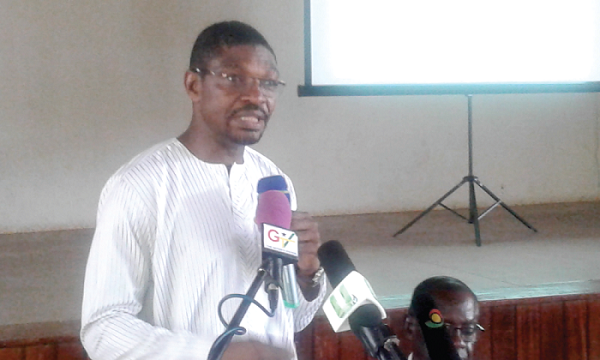
IDEG laments release of funds to 3 sectors
The Institute for Democratic Governance (IDEG) has lamented the release of inadequate budget to three sectors of the economy: education, health and social protection, leading to the abysmal performance of the sectors.
The Director of Operations at IDEG, Mr Kofi Awity, who announced this, explained that the persistent inadequate provision of resources to these sectors which played very crucial roles in the nation’s economy had affected the smooth development of the nation.
He appealed to the government to consider increasing votes to these critical sectors of the economy to speed the nation’s development.
He explained that although huge sums of money were voted for the payment of emoluments of personnel of these sectors, amounts voted for goods and services as well as capital expenditure to help them work effectively, were too small to make any positive impact on the national economy.
Mr Awity said this at a roundtable discussion on budget analysis on the education, health and social protection sectors of the economy at the Christian Village in Kumasi.
In attendance were representatives from various political parties, budget officers, civil society groups, traditional authorities and representatives of various assemblies.
Background
On February 14 and 15, 2017, the IDEG in partnership with the West African Civil Society Forum, held a workshop on fiscal policy to tackle inequality in Ghana.
It brought together relevant stakeholders who are working to bridge the inequality gaps as outlined in the International Monetary Fund report released in April 2016 which suggested that: “Many countries need to reset their policies to reinvigorate growth.”
The IDEG, in collaboration with OXFAM, has since February 2018, as part of its effort to contribute to a just and fair society where equal opportunities exist for all, organised roundtable conferences on inequality on the theme: “Exploring the nexus between budget allocation and inequality” in the Accra and Tamale metropolitan areas.
Low productivity
Mr Awity stated that the current arrangement had led to the personnel receiving their salaries and allowances all right but there was no funding for their operations.
“Look at a situation whereby the right number of teachers, nurses, doctors and other personnel are at post to work but there is no supply of chalk, books, and other input to enhance their work,” Mr Awity said.
He explained further that the selection of the three sectors was due to the fact that they were very crucial in the development of the country.
“These are three key sectors which could close the gap between poverty and wealth,” Mr Awity stated.
He has, therefore, recommended that the government should increase allocation of goods and services during the mid-term assessment and through a supplementary budget since a reduction in goods and services does not augur well for the sector.
He was upbeat that after the various engagements with stakeholders in the country, it would meet the governance agencies to discuss some of the issues raised during their tour around the country.
The Paramount Chief of Gyadam in the Asante Akim South District, Nana Ayum Kum Nipa, urged for all to take a keen interest in the development of the nation by contributing their views to get the best results.
He appealed to policy makers in the country to ensure that the right resources were released to the various facets of the economy to avoid spending huge sums of money on emolument but not providing workers with the right resources to work with.
